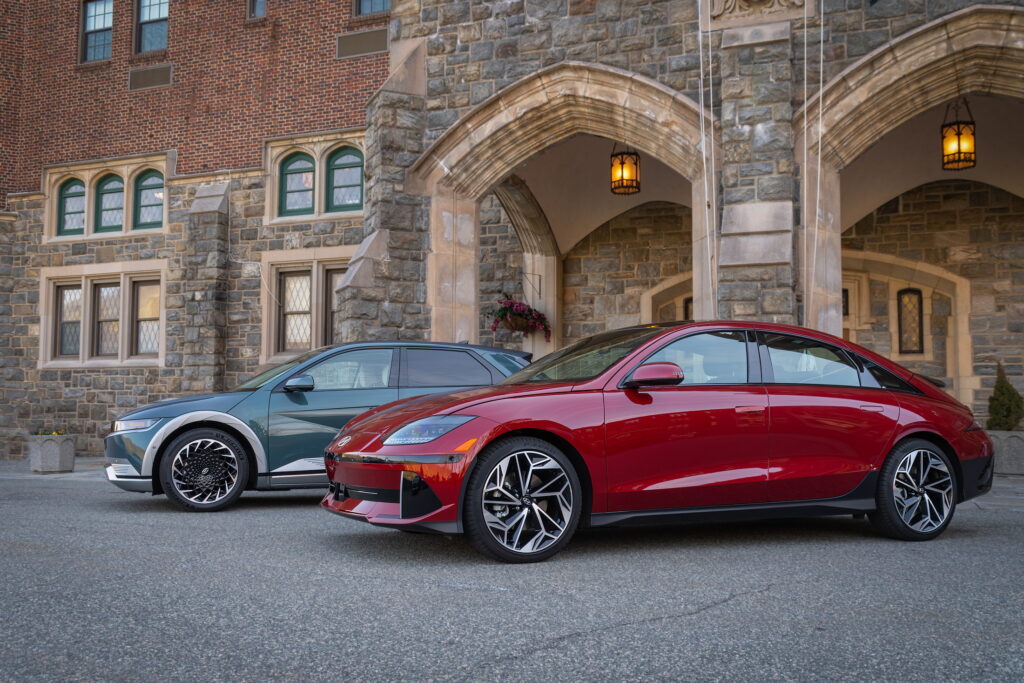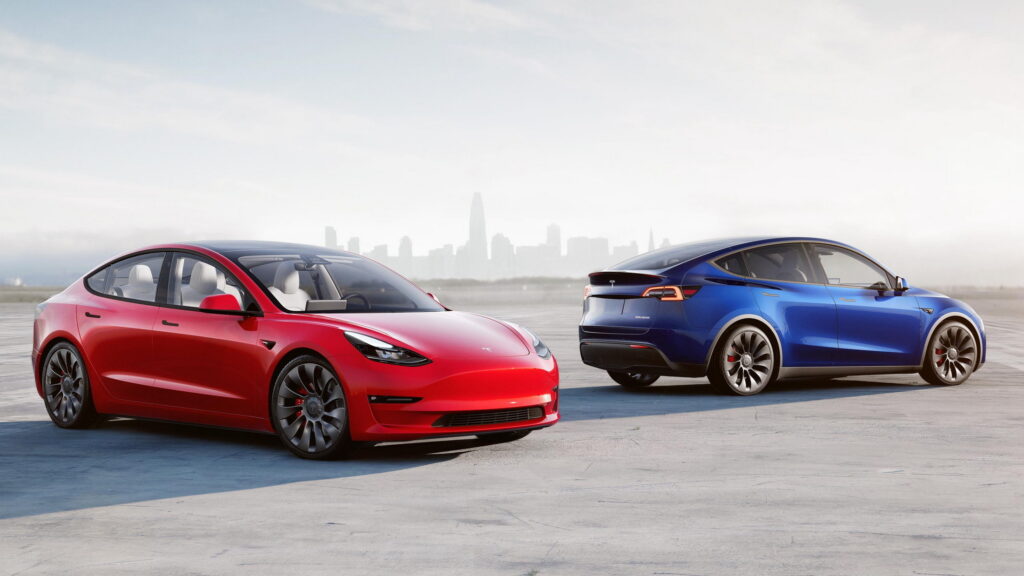A high tide is, indeed, lifting all ships, as a growing EV market means that a large number of automakers sold more vehicles in the first half of 2023 than they did a year ago. Despite growing sales at many automakers, Tesla continues to dominate the American EV sector.
The all-electric brand saw its sales rise by 30 percent in the first six months of 2023, as compared to a year earlier. That meant that it sold 336,892 vehicles, or nearly 300,000 more than the second-place company by volume, Hyundai-Kia.
The Korean automakers combined for 38,457 EV sales in Q1 and Q2, 2023, an increase of 11 percent over the same period a year earlier, CNBC reports. Its sales were buoyed by a strong second quarter, that allowed it to surpass GM, which had been the number two EV seller in America in the first quarter of 2023.
Read: Tesla Delivered A Record 466,140 Vehicles Worldwide Last Quarter Or Up 83% Year-On-Year
Hyundai-Kia‘s success is noteworthy, because it is the only automaker in the top five biggest EV brands without a single vehicle that can offer U.S. tax credits to buyers. However, its vehicles do qualify for credits when they’re being leased, which has pushed its leasing rate up from two percent all the way to 30 percent.
Despite slipping behind the Korean brands in the standings, GM managed to sell 36,322 passenger EVs between January and June 2023. Although that means that it is behind Hyundai-Kia, it is an impressive 365 percent increase over the same period a year earlier.
Rounding out the top five were Volkswagen, which has increased its sales by 114 percent so far this year to reach a total of 26,538, and Ford, whose sales increased by 12 percent to reach 25,709.
Although its sales are increasing, its performance has suffered as, in 2022, Ford was the second-biggest EV manufacturer in America. The company is convinced that now that the facility that produces the all-electric Mustang Mach-E has been retooled, its sales will grow even more.
Tesla also lost some ground to its competitors, despite its strong position. Thanks to increasing sales at legacy automakers, its share of the U.S. EV market has fallen from 60 percent in 2022 to around 50 percent so far this year.
However, among all other automakers, just five control more than one percent of the EV market in America. The biggest controls just four percent, as compared to Tesla’s 50, meaning that it is unlikely to be sweating yet.





